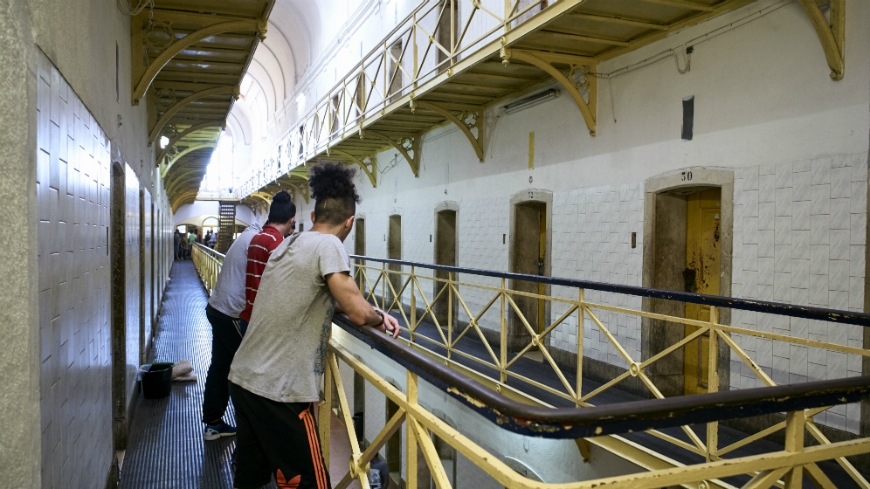In the report, the CPT welcomes the recent recognition by the authorities to reform the prison system of England and Wales. Yet, it underlines that unless concrete, determined and swift action is taken to significantly reduce the current prison population, the regime improvements envisaged by the authorities’ reform agenda would remain unattainable.
The CPT is deeply concerned by the amount of severe generalised violence evident in each of the prisons visited, notably inter-prisoner violence and attacks by prisoners on staff. Injuries to both prisoners and staff, documented over a three-month period in the prisons visited, included multiple cases of scalding water being thrown over victims (resulting in severe burns over 10% of the victims’ bodies), ‘shank’ (make-shift knife) wounds, head wounds, broken noses and broken teeth. Injuries frequently required hospitalisation and, in one case, resulted in the death of an inmate. While the number of recorded violent incidents at all prisons visited was alarmingly high, the CPT believes that these figures under-record the actual number of incidents and consequently fail to afford a true picture of the severity of the situation.
The cumulative effect of certain systemic failings found is that none of the prisons visited could be considered safe for prisoners or staff. The CPT recommends that concrete measures be taken to bring prisons back under the effective control of staff, reversing the recent trends of escalating violence and that a far greater investment in preventing violence be undertaken. In particular, this requires a swift reinforcement of staffing levels to provide for a safe environment for prisoners and staff.
The CPT underlines that many aspects of prison life were being negatively affected by overcrowding in the prison system. The regimes in all prisons visited were inadequate, with a considerable number of prisoners spending up to 22 hours per day locked up in their cells. The situation was particularly bleak for juveniles placed on ‘separation’ lists, who could spend up to 23.5 hours a day locked up alone in their cells. In the CPT’s view, holding juveniles in such conditions amounts to inhuman and degrading treatment. Findings and data show that juvenile offenders in YOIs have been held alone in conditions akin to solitary confinement for periods of 30 days, 60 days and even, occasionally, up to 80 days. The CPT recommends that juveniles should not be segregated in such conditions, even for the purposes of good order, and instead be placed in small staff-intensive units.
As regards the psychiatric institutions visited, the CPT’s report recognises the clear dedication of the many mental health professionals working hard to care for the patients under their responsibility. However, the CPT considers that there are a few areas which require serious reflection and change; notably, consent to treatment safeguards need to be reinforced during the first three months of involuntary placement in a hospital; the powers of the Mental Health Tribunal need to be reinforced and expanded to deal with appeals concerning such issues as consent to treatment, transfers to more secure hospitals, the use of means of restraint and the application of specific treatment measures. In the high secure hospitals, the CPT is highly critical about the measure of long-term segregation as currently applied and voices misgivings over the use of force deployed to control patients. It also calls for a review of the night time confinement policy in these hospitals. More generally, the report recommends greater efforts are required to recruit and retain registered mental health nurses, whose numbers have decreased by more than 8.5% since 2009, at a time when the number of patients being detained in England is increasing year on year.
The report is published at the request of the United Kingdom authorities. The response of the United Kingdom will be published shortly.



